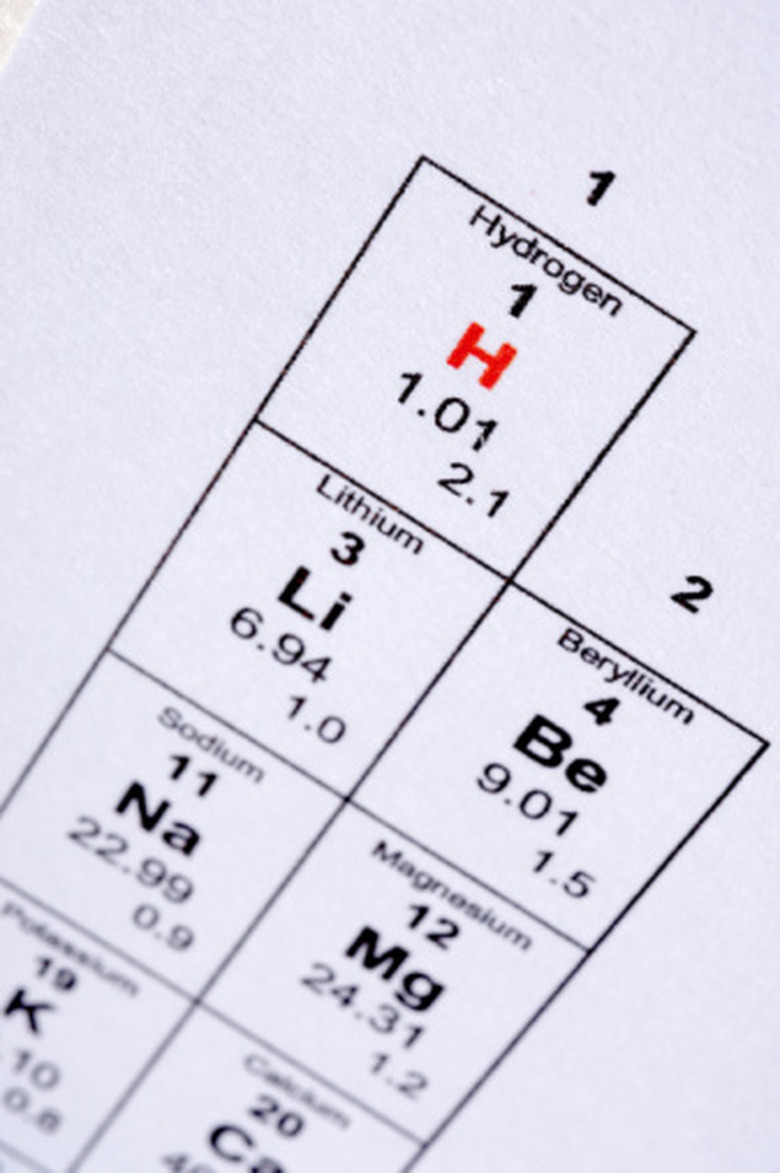Physical Address
Suite 5, 181 High Street,
Willoughby North NSW 2068
Physical Address
Suite 5, 181 High Street,
Willoughby North NSW 2068

All atoms of an element have the same number of protons in their nuclei; different isotopes, however, have different numbers of neutrons in their nuclei. Hydrogen, for example, has only one proton in its nucleus, but an isotope of hydrogen called deuterium has a neutron in addition to the proton. Isotopes are generally designated by the mass number, which is the number of protons and neutrons in a nucleus of that isotope. The binding energy of the nucleons in the nucleus causes the actual mass of the atom to be slightly different from the mass number, so the actual mass can only be determined experimentally. You can determine the mass number, however, merely by adding up the number of neutrons and protons.
Write down the number of protons in the nucleus of the element you are studying. The number of protons is the same as the atomic number of the element on the periodic table. Carbon, for example, has atomic number 6 and hence six protons in its nucleus.
Write down the number of neutrons. This depends on the isotope you chose to study. Carbon-13, for example, has seven neutrons.
Add the number of neutrons to the number of protons to find the nominal mass or mass number. The mass number of carbon-13, for example, is 13. Keep in mind that owing to the binding energy for nucleons, the actual mass of carbon-13 will be very slightly different from the nominal mass. For most calculations the nominal mass should be sufficient.
Look up the exact atomic mass in the table at the National Institute of Standards and Technology Atomic Weights Web page if you need the exact atomic mass. This figure can only be determined experimentally.